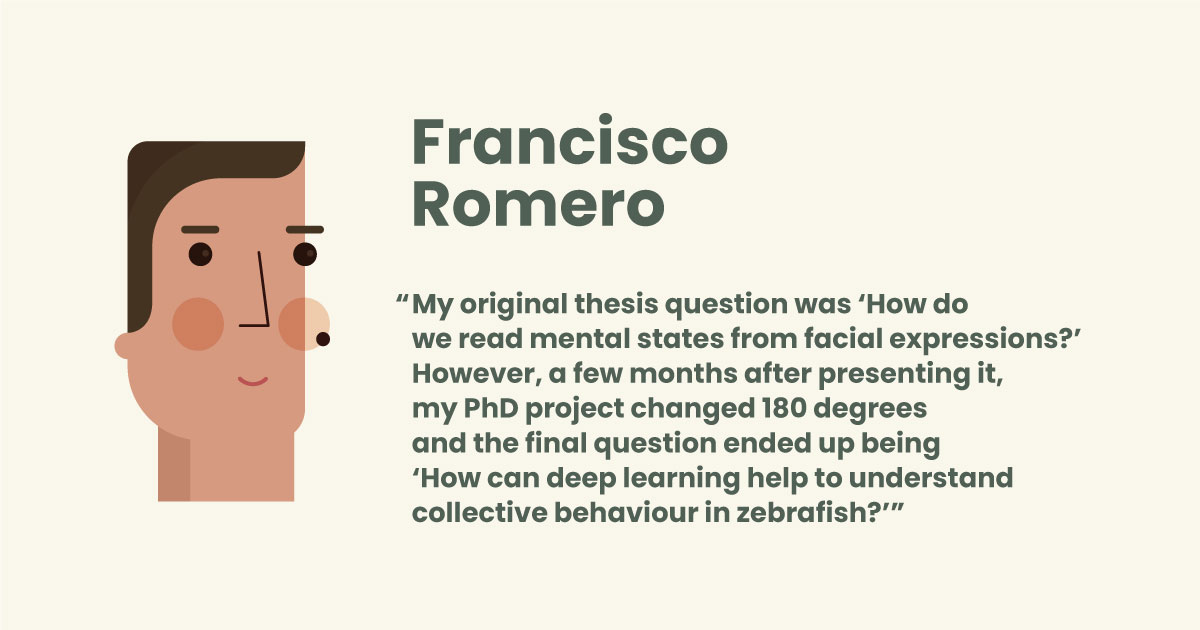
What was your thesis question and what did you find?
My original thesis question was ‘How do we read mental states from facial expressions?’ However, a few months after presenting it, my PhD project changed 180 degrees and the final question ended up being ‘How can deep learning help to understand collective behaviour in zebrafish?’ We found that deep learning is a very powerful tool and that when you know the structure of the problem well, it can be extremely useful. In particular, we found that convolutional neural networks can distinguish up to 150 different animals simultaneously and they can be trained in a self-supervised manner to track animals from videos using their visual features. In the second part of the PhD, we combined our new tracking method with deep attention neural networks to predict the behaviour of fish in large groups.
Can you share with us a memorable moment you experienced at Champalimaud?
After so many years at Champalimaud, I am finding it quite difficult to choose a single moment. Most of the ones that come to my mind are related to the different social gatherings organised over these years (retreats, beer hours, winter and summer parties, Ar | Respire Connosco events, basketball and volleyball games, music rehearsals...). This really makes me think that besides being a great place to do science, Champalimaud Research is without doubt a unique place with a unique community with a special will to generate memorable moments. So I just hope that in the following years, many of these social events, which have disappeared during the pandemic, come back for the good of the community.
What are your post-PhD plans?
For some months after the PhD, I stayed at the lab finishing projects and transferring the knowledge I had acquired to new lab members. But, after all these wonderful years, my time at Champalimaud has reached an end. With the pandemic, I realised I want to be closer to my family in Spain. So, next year I will start working as a Data Scientist there. This job will allow me to work remotely a good part of the time and I have the feeling that it will also give me more time to develop my other two passions, music and photography.
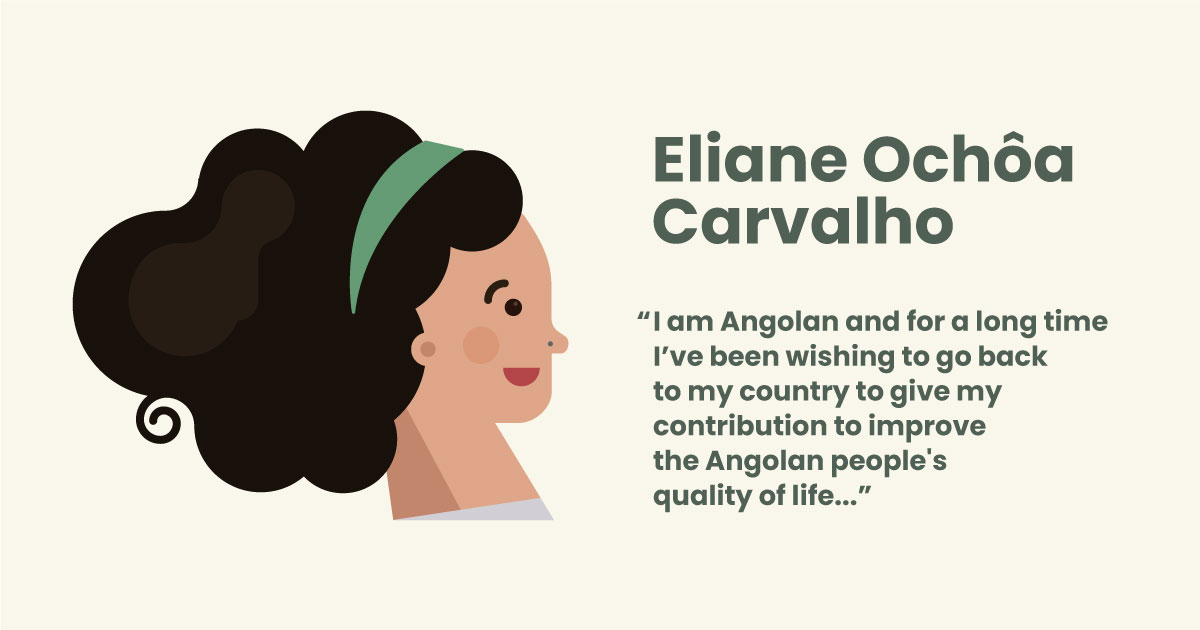
What was your thesis question and what did you find?
The main purpose of my work was to find neurons in the female fruit fly brain that modulate receptivity, and to test if manipulating these neurons somehow affects the female’s behaviour. We found a new set of neurons that are necessary for females to be receptive to a courting male, and that silencing these neurons induces flies to escape from the male by speeding up, pausing less or jumping more. My work also indicates that the courtship song may have a dual role in female behaviour, first inducing females to increase the speed, which gives her time to assess male qualities and then, slowing her down and causing her to pause so that copulation can occur. These results present new possibilities for how female receptivity is modulated, and open new doors for further investigation.
Can you share with us a memorable moment you experienced at Champalimaud?
For this one I had to think a bit more… It gets me to think about all my journey at CCU. I have the pleasure to keep some memorable moments...all kinds! Some sad, some happy, some embarrassing ...some of pure joy and excitement. It is really hard to pick one (from the ones that I can tell ), so I will tell you about the first day I stepped into the Champalimaud building. If memory serves me right, it was in August 2014, to meet Luísa for an interview and spend the day with the Innate Behaviour Lab members . I was excited and afraid at the same time, felt butterflies in my stomach, hands sweating and cold... I was really nervous ! But, when I arrived at the Neuroscience Research floor (the only one at that time), I just thought: "It must be great to work in a place like this!". Not because of the intellectuality of the place or the quality of the investigation being done at the CCU, which I had heard about but never experienced; it was the light of the building that captivated me, the natural light that enters into every corner of the Champalimaud Foundation. Luckily I was accepted and spent seven wonderful years as part of the CCU community.
What are your post-PhD plans?
I am Angolan and for a long time I’ve been wishing to go back to my country to give my contribution to improve the Angolan people's quality of life, even if it’s only a little contribution. With the pandemic situation, I had to put my goals and plans in perspective and I am taking some time to think carefully and look for opportunities that will allow me to accomplish my goals, either directly or indirectly. Meanwhile, I am doing online courses to complete my CV with topics that I feel are missing. Maybe my path is not as direct as I had hoped, but I am sure that I will get there.
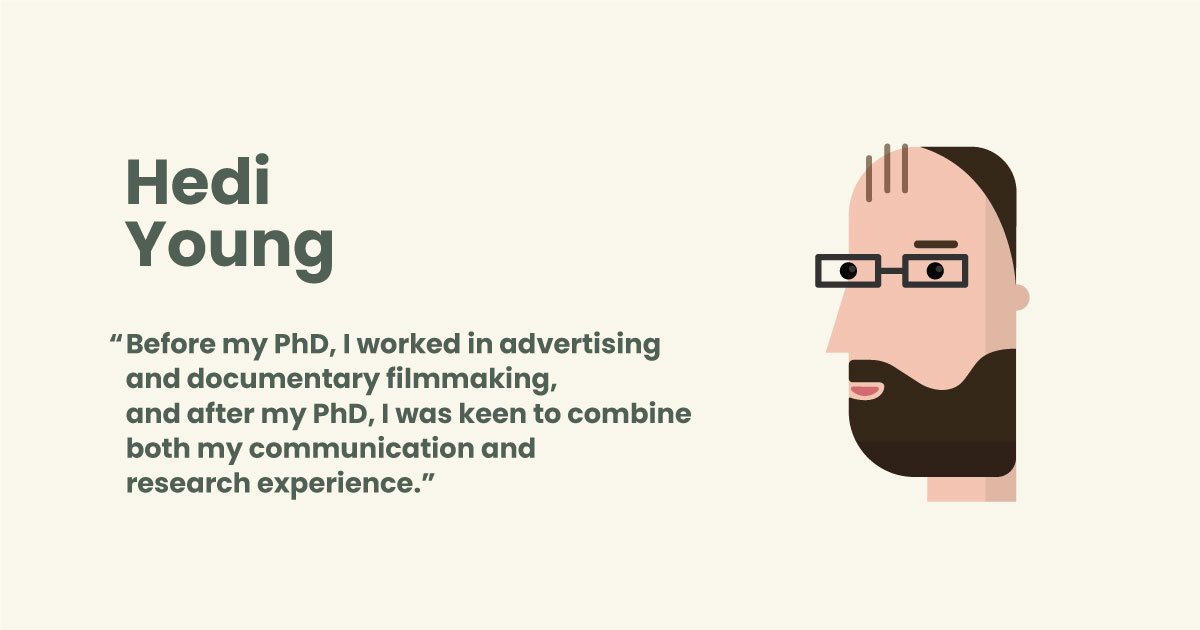
What was your thesis question and what did you find?
Much remains unknown about the organisation of connections in the cortex, the wrinkled outer layer of our brain responsible for functions ranging from perception and cognition to memory and voluntary action.
We found evidence that the mouse visual cortex engages in long-range loops, where cells projecting to a given cortical area receive preferential reciprocal input from that same area in a “Talk to me and I’ll talk back to you” manner.
These inter-areal loops show remarkable specificity, often involving the mysterious branches that certain cell types in the deep layers of the cortex extend to the surface of the brain.
Can you share with us a memorable moment you experienced at Champalimaud?
Giving a talk for an Ar Event I co-organised with Victoria Brugada and Nuno Loureiro on one of my favourite topics: food. The talk looks at how our different biologies may account for our different food preferences, and was inspired by several remarkable individuals I met at Champalimaud who confessed that they didn’t like chocolate, even after I got them to try a bar from my favourite chocolate shop in Lisbon, Bettina & Niccolò Corallo!
Another memorable moment, also food-related, was getting my PhD supervisor, Leopoldo Petreanu, to bite into a hard drive for a comedy promo called “Zebrafish Tank” that I made with Roberto Medina for one of our annual retreats.
What are your post-PhD plans?
Before my PhD, I worked in advertising and documentary filmmaking, and after my PhD, I was keen to combine both my communication and research experience. I now work as the Digital Content & Social Media Editor at the Champalimaud Foundation.
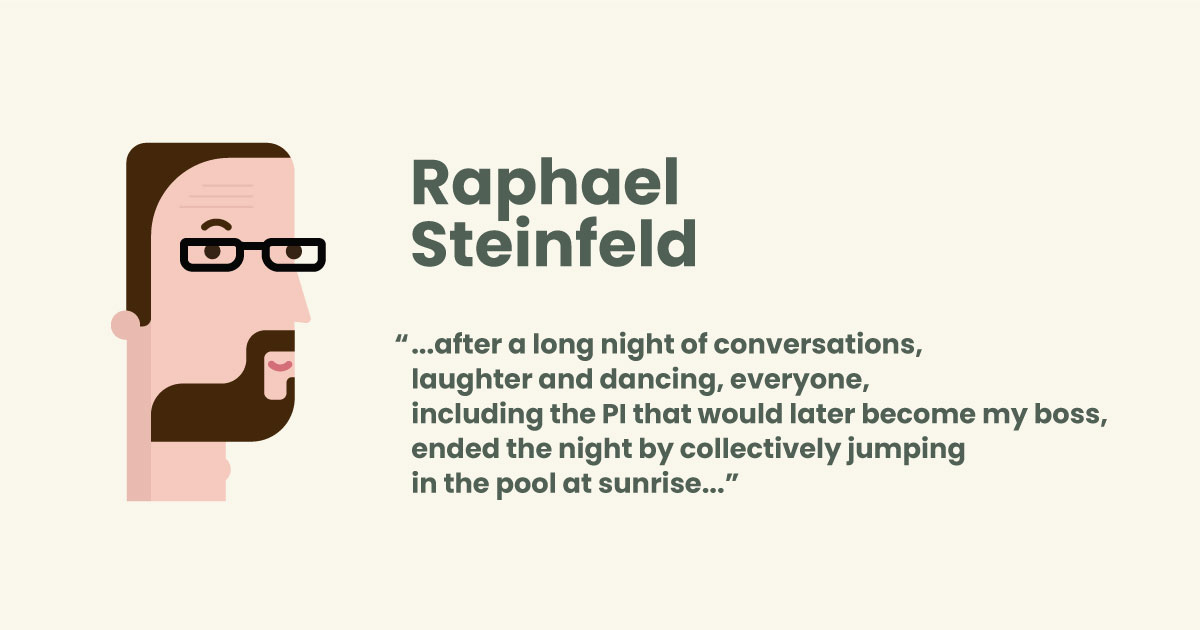
What was your thesis question and what did you find?
During my PhD, I investigated the activity of neurons in the auditory cortex in the context of sensory decision making. For this, we trained mice to distinguish high and low frequency sounds and recorded the activity of the auditory cortex neurons. Interestingly, we found that the recorded neurons did not only reflect the sounds that we presented to the animals, but also predicted their decision - almost one second before they reported that decision.
Apart from that, we also investigated spontaneous neural activity in the absence of sound. We found that the synchrony of the neural population predicted the accuracy of the next trial, but only if the previous decision had been a mistake. We are currently testing a hypothesis for explaining this observation. We suspect that while performing the task well, mice don’t need cortical involvement. However, when they make a mistake, their auditory cortex might be needed to help them to ‘refocus’.
Can you share with us a memorable moment you experienced at Champalimaud?
Over the time I have spent in the PhD programme, a lot of special and memorable moments come to mind. However, maybe one of the most defining ones for starting my journey at this institute happened during the first CR retreat I attended. While I had been to retreats of other institutes before, I was deeply impressed with the atmosphere that this group of people had managed to create for themselves. I was used to a clear presence of hierarchy in the interaction of students, postdocs and PIs during such events, however, here things seemed very relaxed, familiar and horizontal - creating an open and very welcoming environment and community that almost felt as familiar as a big family. By the end of the retreat, after a long night of conversations, laughter and dancing, everyone, including the PI that would later become my boss, ended the night by collectively jumping in the pool at sunrise. I then knew that I would be proud to become part of that family myself. And even though the PhD is a long and quite often frustrating journey, with PIs tending to get complicated at times along the way, and it generally being about effort, resilience and persistence instead of parties, that premonition has proven itself quite true.
What are your post-PhD plans?
After finishing my PhD I have now started a new postdoc project at the Champalimaud Foundation, investigating the robustness of sound representations in the mouse auditory cortex to optogenetic perturbations and its underlying mechanisms.
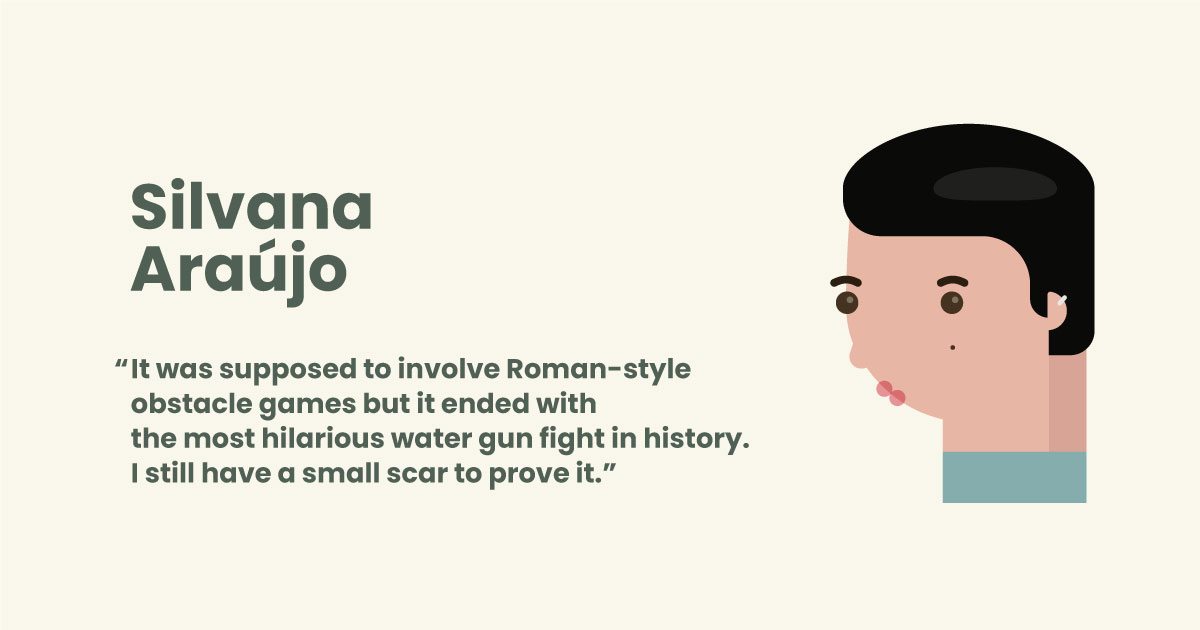
What was your thesis question and what did you find?
We wanted to get a better understanding of male sexual behaviour and the role of dopamine in it. Describing this behaviour in great detail in mice has led us to suggest a new behavioural state that predicts impending ejaculation, which we called the commitment state. We also investigated dopamine release during the execution of male sexual behaviour in mice and were confronted with interesting results that led us to suggest a “not so classical” role for dopamine here. We propose that instead of purely representing unpredictable rewards (which is the classical function of midbrain dopaminergic neurons), the activity of these neurons during male sexual behaviour might reflect the execution of an action that is helping the animal return to its homeostatic point.
Can you share with us a memorable moment you experienced at Champalimaud?
I have two moments that will (hopefully) stay with me forever… One happened during my first annual retreat, mainly the party of the last day. It was supposed to involve Roman-style obstacle games but it ended with the most hilarious water gun fight in history. I still have a small scar to prove it. The second was an incident in my lab (that quickly evolved to the entire Open Lab) involving a Masters student and a tiny amount of garlic oil. Let's just say that the Open Lab ended up smelling like garlic bread for a good two days. The garlic oil container went to incineration and the Masters student got a new title: Master of Garlic (MGa).
What are your post-PhD plans?
Enjoy some of my free time and spend it “guilt free” with my kids and my punch needle (not at the same time. )
I’m also enjoying my position at VectorB2B CoLab as an In vivo Scientist, helping to set up the first GLP (Good Laboratory Practice) in vivo facility in Portugal and having the opportunity to make some steps in digital marketing and content creation.
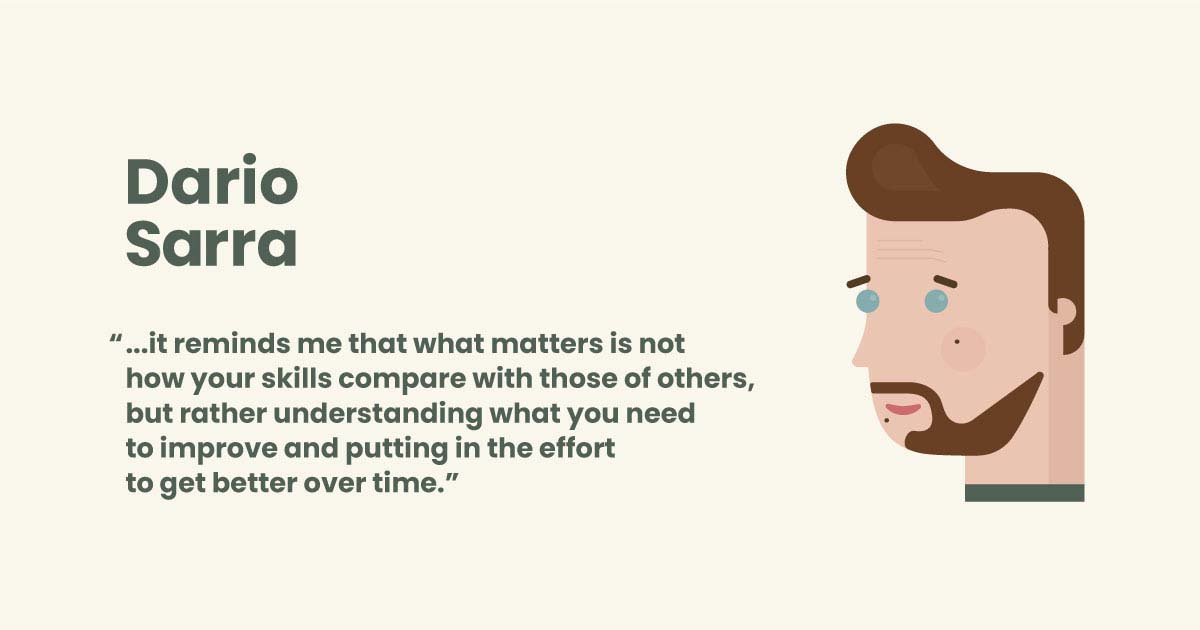
What was your thesis question and what did you find?
During my PhD research, I investigated decision making in mice that were engaged in a foraging task. We tried to understand the computational and neurological basis of how animals represent the state of the environment and decide when it is time to leave one patch in favour of another. In particular, we found evidence that the neuromodulator serotonin is responsible for persistently trying to obtain reward at the same patch (balance persistence), and for switching to an alternative patch in response to unsuccessful foraging attempts (flexibility).
Can you share with us a memorable moment you experienced at Champalimaud?
One memory that I like to share is the first time I presented in a Mainen Lab Meeting. I was a research technician at the time, just about 10 days after I moved to Lisbon. To put it simply, it went very very wrong. The research question was almost unintelligible and the plots and stats were rudimental and unclear. However, it is a memory that I cherish, because it reminds me that what matters is not how your skills compare with those of others, but rather understanding what you need to improve and putting in the effort to get better over time. If one is patient with oneself and takes criticism in a positive light, the PhD can turn into a unique growth opportunity.
What are your post-PhD plans?
I will continue in academia, starting as a PostDoc at the University of Oxford in the lab of Prof. Mark Walton.
By Liad Hollender, Science writer and editor of the CCU Communication, Outreach and Events team.
Illustrations by Carla Emilie Pereira, Designer of the CCU Communication, Outreach and Events team.
Curious about our state-of-the-art international doctoral programme in neuroscience & cancer in sunny Lisbon?
We are now recruiting! Find out more here.








